Bantu knot hairstyles have been popular for 100 years among African women and have recently been picked up by African-Americans. The name “Bantu knots” comes from the Bantu people, an ethnic group with roots in central and southern Africa.
So, what do Bantu knots represent? They represent the protection of a woman from the outside world. The protection and security of a woman who will one day shed their protective cocoon when they’re ready.
Let’s find out what a Bantu knot signifies and how it’s created.
Bantu Knots Look
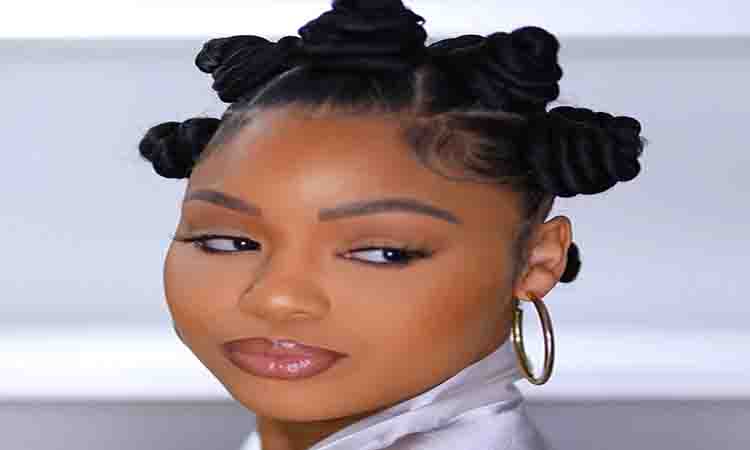
When you picture a Bantu knot, the image that likely comes to mind is probably of someone’s hair twisted and wrapped around itself that looks like a long tube or pyramid. The look can also be known as Nubian Knots.
Because of their twisted appearance, they’re similar to the minibus. Some people may refer to this hairstyle as a coil, but the fact is that it’s a different style of hair.
It’s especially popular among younger black women, who love to wear this look because it’s versatile and trendy.
You can wear Bantu knots in long or short hair; the style and length will depend on your preference and styling needs. However, this hairstyle looks great in short hair.
The main advantage of wearing this style is it keeps your head cool and fresh in summer. You can do this hairstyle on both dry and damp hair.
Bantu knots are also very practical because they’re very quick to do. You can make them in the morning and wear them all day long. It would be almost impossible to go wrong with this style.
Do Bantu Knots Have A Religious Significance?
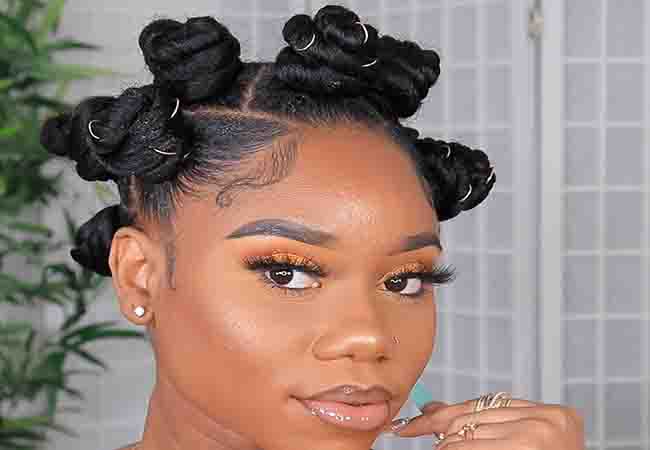
The Bantu knot was traditionally seen as a religious symbol and it’s still used in various African ceremonies, primarily by the Zulu people. Bantu-speaking people and Zulu tribes consider this style blessed.
They believe this hairstyle will bring them closer to heaven, and there is a unique spiritual power inside the style.
However, the knot has no profound or important religious meaning outside of Africa. It’s simply a circumscribing hairstyle that can be found among other cultures.
Are Bantu Knots Racist?
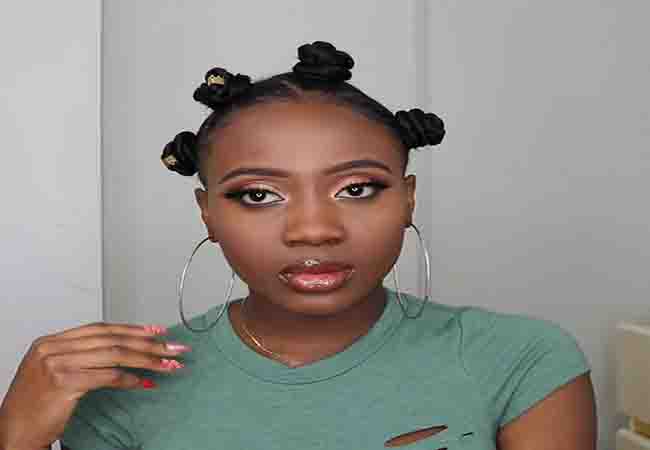
Racism comes in many forms and can be expressed in different ways. Treating people differently because of their culture is one form of racism.
Capturing another culture and tradition is common. So there is nothing racist about the Bantu knots.
But from a long time ago in America, black people have been criticized, appropriated, and misinterpreted by white people for their ancient black hairstyles.
Black people have been fighting for recognition of their history, traditions, and hairstyles for a long time. The historic Black Movement gave them what they wanted.
Since 2000, people of all races have positively accepted this hairstyle and worn Bantu knots. So there is no more discrimination about it. Celebrities like Adele, Rihanna, and more use this hairstyle.
Though some people think so, the evidence is mounting that Bantu knots aren’t racist and are just a hairstyle.
However, problems arise when you don’t give credit to the people who invented Bantu knots and represent them as your creation. It’s like stealing from their culture and exploiting the people who pioneered this hairstyle.
What Culture Are Bantu Knots From?
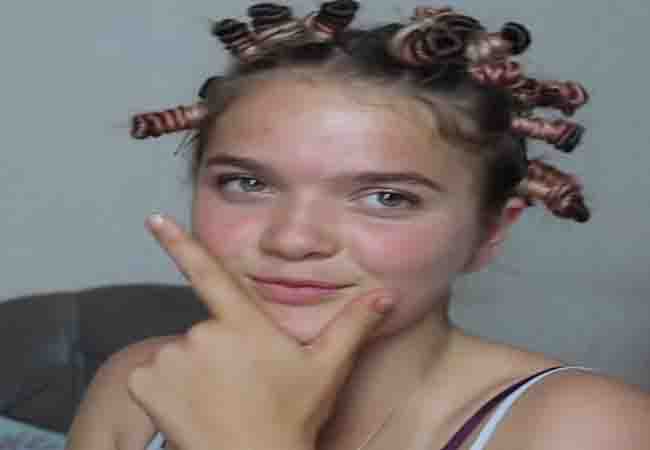
The hairstyle’s name, Bantu, came from the Bantu people, a collective term for the 300-plus ethnic groups who speak the Bantu language.
Bantu knots are a hairstyle that originates in Africa. More specifically, they’re a braiding technique from Zulu tribes in western and southern Africa.
Initially, this hairstyle was popular only in central Africa. But later, this hairstyle became famous worldwide, and people of other races started adopting it.
What Do Bantu Knots Signify?
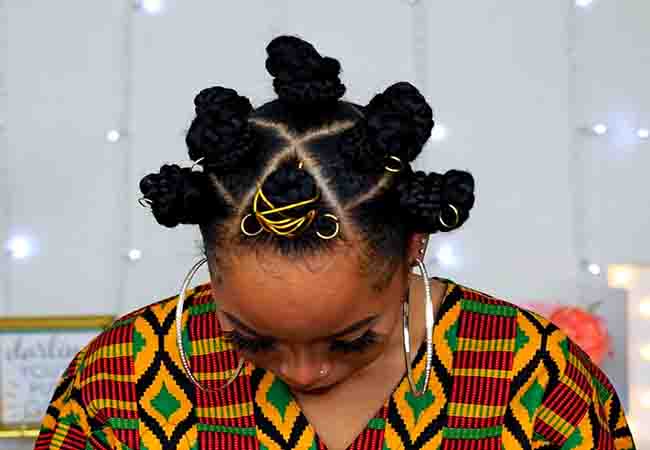
Some African women are proud to wear this hairstyle because it shows their natural hair heritage passed down from generation to generation.
Surprisingly, many African-American black people don’t know what Bantu knots signify. They believe they are just a hairstyle, but they’ve roots that date back to ancient African culture.
Aside from being a style for dreadlocks, the Bantu knot is a symbol of unity and the meaning of Black art. They represent the people who speak the Bantu language.
A Bantu knot symbolizes unity, as in the art form that it represents, among Black people in southern Africa. With their rich African heritage, Bantu knots are also a sign of self-love and pro-Blackness.
Significance of Bantu Knots
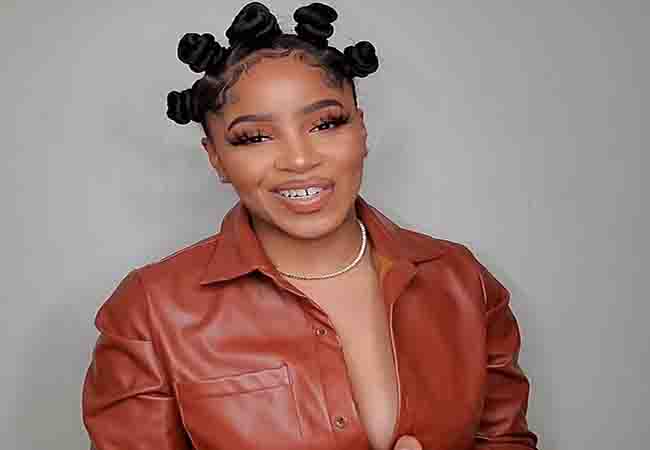
Björk, a famous Icelandic singer and songwriter, popularized this hairstyle in the late 1990s. Since then, Bantu knots have been a style of African hairstyle that has become popular among the general population.
This hairstyle isn’t just aesthetically and culturally significant. Here are some signs of Bantu knots hairstyle:
I. Easy To Maintain
Most African hairstyles require the user to take great care while being maintained or styled. However, Bantu knots require minimum care and don’t get damaged easily. This makes them easy to maintain.
II. Natural Style
Unlike other hairstyles that need the use of extensions. These hairstyles are natural and do not require the use of any chemical products. This makes them an ideal choice for people wishing to maintain natural hairstyles.
III. Retain Hair Growth
Bantu knots are known to prevent the breakage of hair shafts. This allows maximum utilization of natural oils in the scalp, promoting healthy hair growth.
They allow the freedom of movement and stimulation of the hair follicles, which promote hair growth.
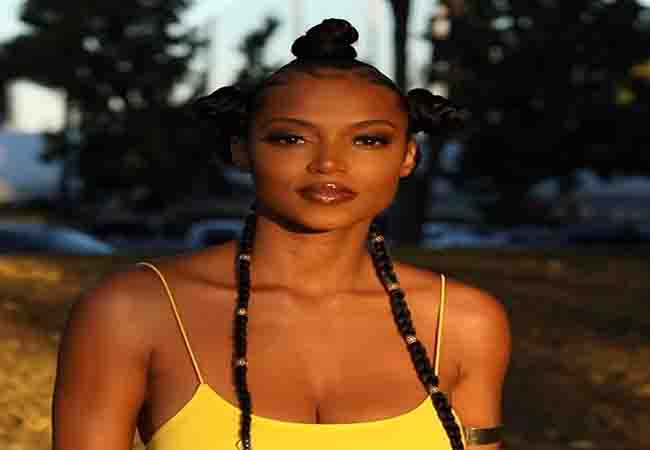
IV. Time Saver
The entire process takes an hour or so to complete. Once you’ve done this many times, maintaining the style with minimal effort becomes quite easy and enjoyable. You can enjoy 2 weeks of perfectly groomed hair that can last the whole day.
V. Cost-effective
Bantu knots are cost-effective as compared to other traditional hairstyles. You don’t need to spend a lot to maintain these styles. The average cost in the market is between 30 to 40 USD.
VI. Versatility
One of the best advantages of Bantu knots hairstyles is their versatility. There are endless styles that can be created using this hairstyle.
You can use braids, twists, cornrows, and dreadlocks with the knots to create different looks.
VII. Trendy
Bantu knots are one of the most recent hairstyles that have come into fashion. These styles are trending and can be found in different colors, textures, and patterns. Several singers, fashion enthusiasts, and beauty bloggers wear these knot styles.
FAQs
Do Bantu knots work on white hair?
Yes, Bantu knots will work on any hair type and color.
What year were Bantu knots popular?
Bantu knots are popular among Africans for over 100 years. However, during the mid-to-late-1990s, Bantu knots get popularity.
Are Bantu knots professional?
Yes, they’re. But that doesn’t mean you need one to get your hair done. The process is simple: just section off part of your hair, comb through and twist it into small backward-facing buns.
What culture are Bantu knots from?
Bantu knots are from African Zulu tribes in South Africa.
Do Bantu knots work on straight hair?
Usually, they work best on curly hair but you can do it on straight hair. However, add a bit of curly anarchy to your hair for a better look.
Verdict
Before doing Bantu knots on your own, you should know about the cultural and historical significance of Bantu knots. And most importantly what do Bantu knots represent?
The story behind it tells a lot about African culture and social norms during the time. Some even believe that this type of hairstyle served a religious purpose.
So we hope that this article will help you know more about Bantu knots and their history. Feel free to post your comments and share this article to spread the word.
